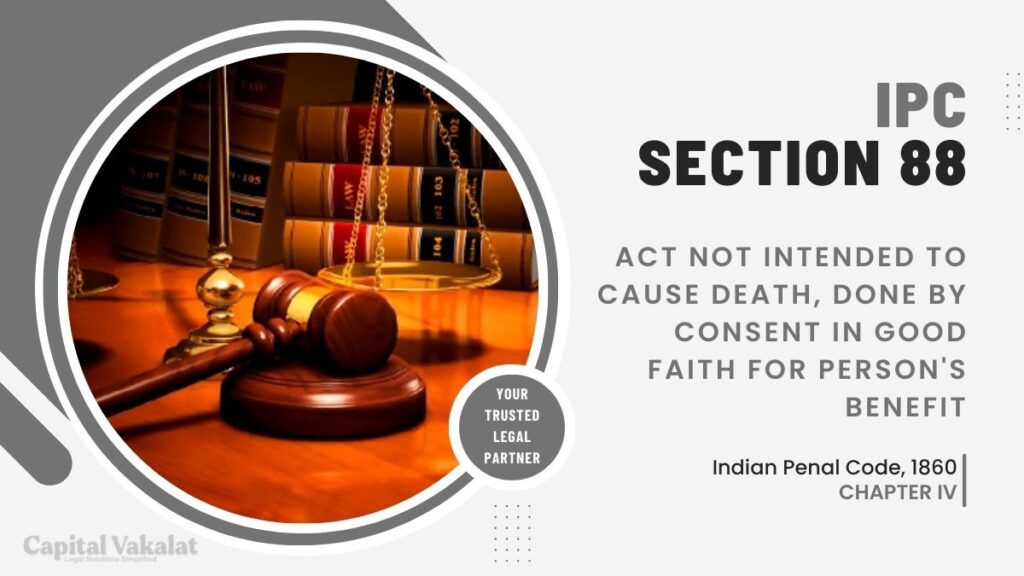In the realm of legal provisions, Section 88 of the Indian Penal Code (IPC) stands as a unique statute that focuses on acts not intended to cause death, but rather, actions undertaken with consent and good faith for the benefit of a person. This intriguing section of the IPC delves into the delicate balance between safeguarding individuals’ well-being and the unintended consequences that might arise.

In this comprehensive article, we will dissect Section 88 IPC, exploring its various aspects and implications.
Unveiling Section 88 IPC
Section 88 of the IPC reads as follows: “Act not intended to cause death, done by consent in good faith for the person’s benefit.” At its core, this provision acknowledges that certain actions, while they may result in harm, are undertaken with good intentions and the explicit consent of the person affected. This legal safeguard recognizes that not all harmful acts should be treated as criminal offenses.
Consent as the Key
The cornerstone of Section 88 IPC is the element of consent. To be protected under this provision, the act in question must have been carried out with the informed consent of the person it affects. In legal terms, consent implies a voluntary and conscious decision made by an individual who is aware of the potential consequences of their actions.
The Importance of Good Faith
Good faith is another pivotal aspect of Section 88 IPC. It requires that the person performing the act must genuinely believe that it is for the benefit of the individual in question. Acting in good faith means that the person must not have any malicious intent or ulterior motive behind their actions.
Examples of Acts Covered
To better understand the scope of Section 88 IPC, let’s explore some practical examples of acts that might fall under its purview:
Medical Procedures
One of the most common scenarios where Section 88 IPC comes into play is in the field of medicine. Life-saving surgeries or medical procedures, even if they carry inherent risks, can be performed with the patient’s consent and in good faith by healthcare professionals.
Parental Discipline
Parents disciplining their children, provided it is within reasonable bounds and not excessive, can also be protected by Section 88 IPC. This acknowledges the importance of parental rights and responsibilities.
Self-Defense
In cases of self-defense, where an individual uses force to protect themselves or others from harm, Section 88 IPC may offer legal protection, given that the actions were taken in good faith and with consent.
Legal Implications
Section 88 IPC serves as a crucial safeguard to prevent well-intentioned individuals from being wrongly penalized for their actions. However, it is essential to note that this provision does not provide absolute immunity. The act must genuinely be intended for the person’s benefit and done in good faith.
Conclusion
Section 88 IPC reflects the nuanced nature of the legal system, recognizing that not all actions resulting in harm should be deemed criminal offenses. It underscores the importance of consent and good faith in determining the legality of such acts, ultimately prioritizing the well-being and rights of individuals.
FAQs
Can medical professionals rely on Section 88 IPC for performing risky surgeries?
Yes, medical professionals can rely on Section 88 IPC when performing surgeries with the patient’s informed consent and in good faith.
What happens if an act done in good faith leads to unintended harm?
If an act done in good faith results in unintended harm, it may still be subject to legal scrutiny. The key is whether the act was genuinely intended for the person’s benefit.
Does Section 88 IPC apply to acts of self-defense?
Yes, Section 88 IPC may apply to acts of self-defense if they are done in good faith and with the intent to protect oneself or others.